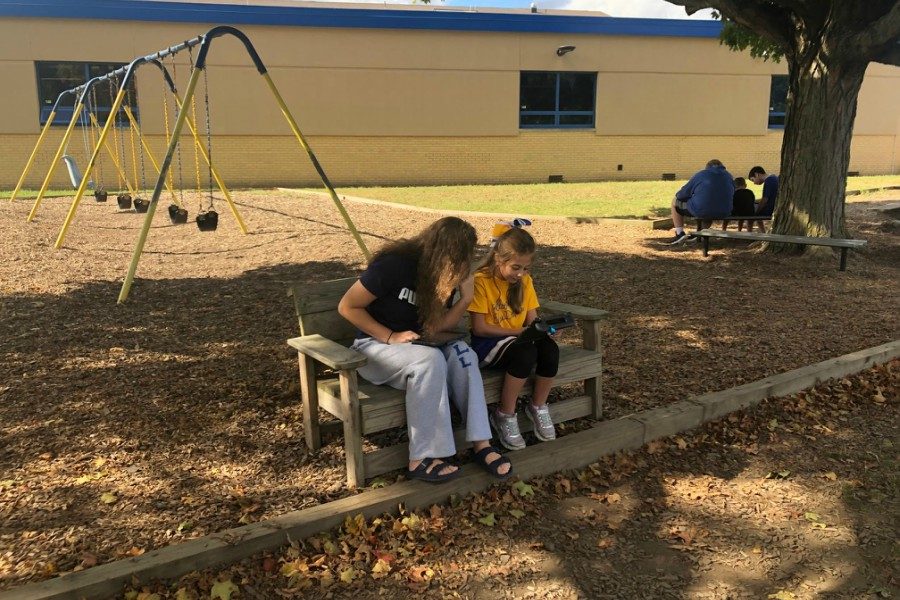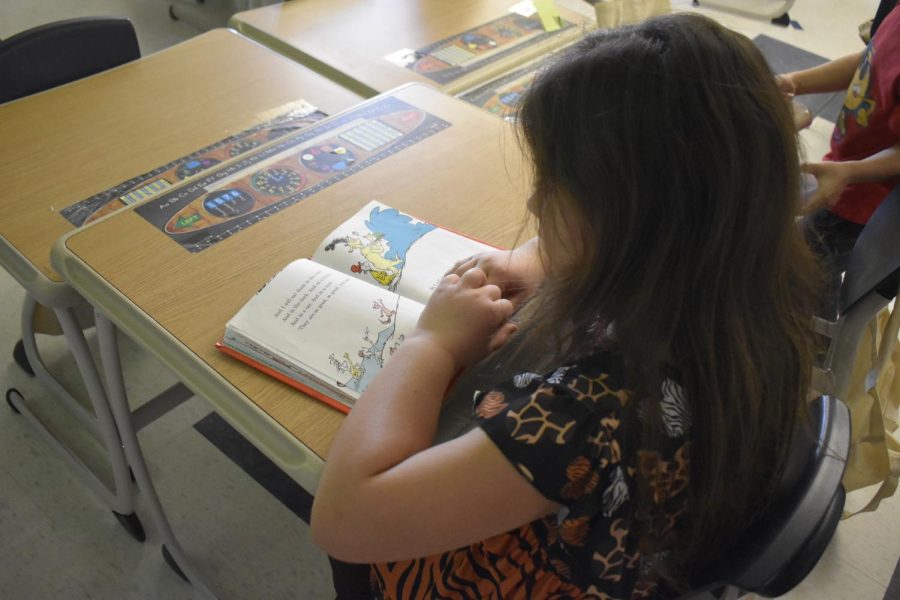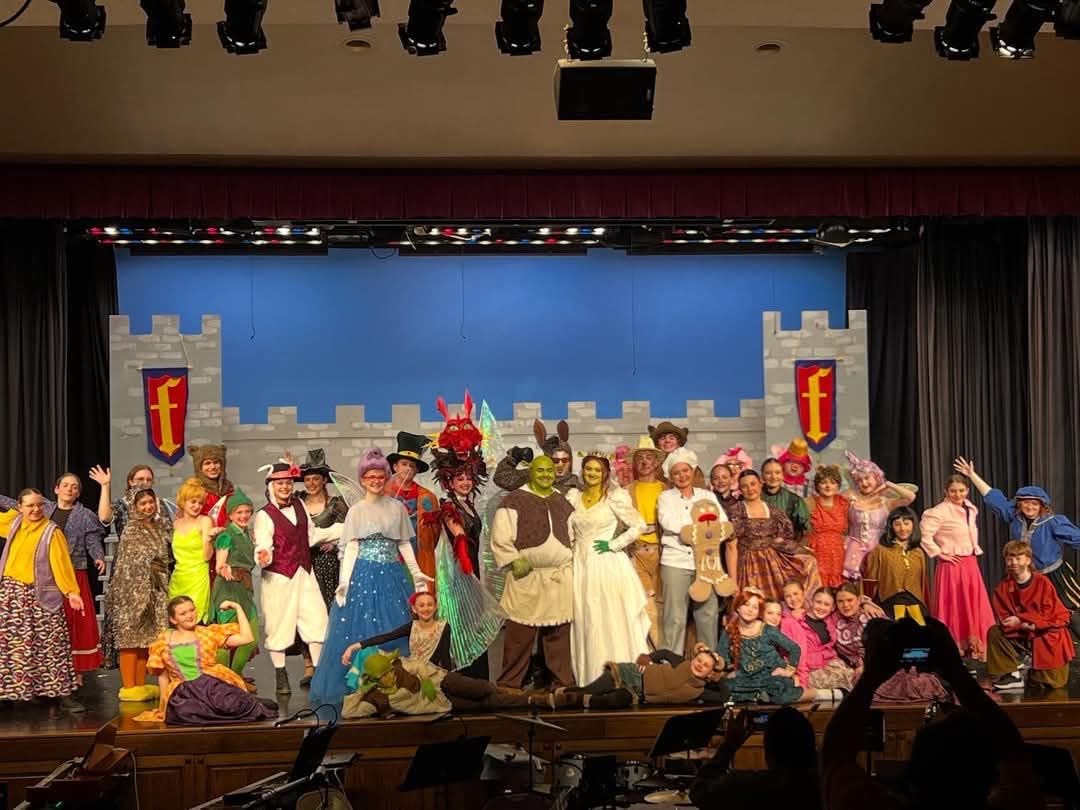Bellwood-Antis senior Evalyna Aiken is one of the few students who still reads for fun daily. She has always had a passion for reading, but took a deeper dive in high school.
“I read for fun because it gives me something productive to do,” Aiken said. “It benefits me because I have little screen time, and provides me with entertainment other than social media.”
Some of the books she has read include The Hunger Games, Looking for Alaska, and The Girl who was Taken.
However across the country, the number of kids reading for fun is declining, and students like Aiken are a dying breed.
The Pew Research Center has found that less than half of all 9-year-olds – 42% – read for fun everyday, while only 19% of 17 -year-olds read for fun daily.
With so many other ways for a child to consume information, that might not seem like a big deal until it starts affecting how students perform in school. Nationally, reading scores are dropping, and more and more students are struggling with reading activities.
“Kids are not reading for fun anymore because there are other options that provide immediate satisfaction,” said BAHS English department chairperson Mr. Kerry Naylor. “It takes making connections with a book and looking back with appreciation, and that takes time. You normally don’t get an immediate rush from reading a book, but that doesn’t make the experience any less worthwhile.”

SCORES DROP
As reported in the BluePrint last year, reading scores at Bellwood-Antis have dropped significantly since 2019.
Although some make the claim that scores are dropping because of the different learning paths students took during the pandemic, this trend has been going on for years.
Educators and parents are attempting to get kids back into reading by trying to find books that will interest them and encouraging kids to want to continue to read.
Reading has many benefits for kids such as expanding vocabulary, improving spelling, improving mathematics, and even things like decision making, social skills, and empathy. Reading can also help reduce stress, improve sleep, and improve levels of focus.
“The benefits of reading are that kids expand their vocabulary, increase comprehension of what they read, and overall just boost their knowledge about the world,” said Myers second grade teacher Mrs. Tara Naylor.
According to the NAEP report that was released at the end of June, 2022, the average level of reading for a 13 year old was lower than all previous years since 1998.
Since 2019, 33 states had the average score decrease; with one of those states being Pennsylvania. So does this apply to the students at Bellwood as well, and are kids still reading for fun?
The Blueprint recently surveyed freshmen students and high school English teachers here at Bellwood, and the responses match the national trends.
Over 50% of the students surveyed said they do not read for pleasure, and out of the ones who say they do read for pleasure, only 13% of them read almost everyday. Some reasons students gave for not reading for pleasure included that they find it boring, there are other more exciting things to do, and they simply don’t have time to pick up a good book.
DISTRACTIONS
Bellwood-Antis English teachers said they have noticed that there is now a smaller group of kids that will pull out a book when they are done with their assignments. In the past, before adopting technology like 1 to 1 IPads, students would frequently read a book in their free time in class. Now, when most students have down time, they are pulling out their phones or IPads instead.
This is concerning for teachers for a number of reasons. With books, Mr. Naylor said, kids are able to build different life skills that they can’t really get from anything else. Now, he said, kids are more satisfied by things that don’t require them to think.
“Reading takes effort, and the effort is worth it, but it’s hard to win that argument in an environment where most students are seeking the stimulation of easy input,” Mr. Naylor said. “If you sit and watch Reels for hours or watch Tik Tok, you get the stimulation but there’s no interaction with you or output from you the reader. It’s all input, and that’s not good. One of the reasons reading has been shown to make people smarter is because of the interaction between reader and text.”
The reluctance to read for pleasure has consequences. According to the Department of Education and Early Childhood Development, the more often you read to a child at a young age, the more it will benefit them academically. Some of those benefits include improved writing skills, and for those who are not readers they may develop at a slower rate or not even develop at all.
“Many of my students write the way they would text; they do not capitalize or punctuate, and they struggle with spelling,” Ms. Poplin said.
Mr. Naylor had also added, “These habits are adapted from the reading kids do most, and that is through texting, where there are no rules.”
When it is so easy for a kid to just pick up their phone and enjoy anything they want right away, they don’t feel the need to take the time to read. Mrs. Bartlett stated, “Even if students claim they are reading on their phones, they are mostly just consuming short headlines or short pieces of information that are of little value and grasp your attention quickly to entertain you.”
The teachers all agreed that because there are so many other things for kids to do, they don’t even think about reaching for a book anymore.
YOUNG READERS NOT IMMUNE
Even teachers from Myers Elementary school have noticed students reading less for pleasure. Second grade teacher Mrs. Tara Naylor had said she feels kids in elementary school are reading less for fun because of lack of motivation.
“If they are not a super strong reader, they are going to push it off to the side because they don’t enjoy reading; the ones that are good at reading are more likely to enjoyably pick up a book,” she said.
Encouraging kids to read can be difficult, especially with all of the distractions around them. Second grade teacher Mrs. Lori Dionis suggested that finding what the kids enjoy to read and what interests them “can help them feel more encouraged to read since they have the freedom of picking what they like.”
GAPS IN EDUCATION COULD INCREASE
Two decades ago the big gap in education was the digital divide, which separated the haves and have-nots in terms of technology and access to information. There were schools that could afford the best and those that could afford barely any at all.
But this divide could soon become the gap between those who read substantive material and those who do not, between those who read for pleasure and those who don’t.
That would give a certain advantage to students like freshman Karlie Estright, who always has her nose in a book.
“I like reading because it allows me to go off into different worlds and learn about their hardships,” she said.
She said she feels that reading has benefitted her greatly because it has helped her become more of a problem solver.
“I now feel I have more determination and intelligence when solving a problem,” Karlie said.















